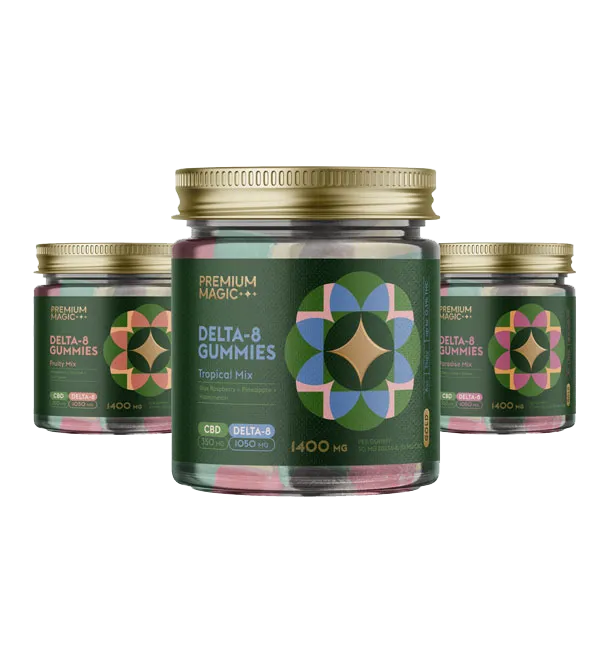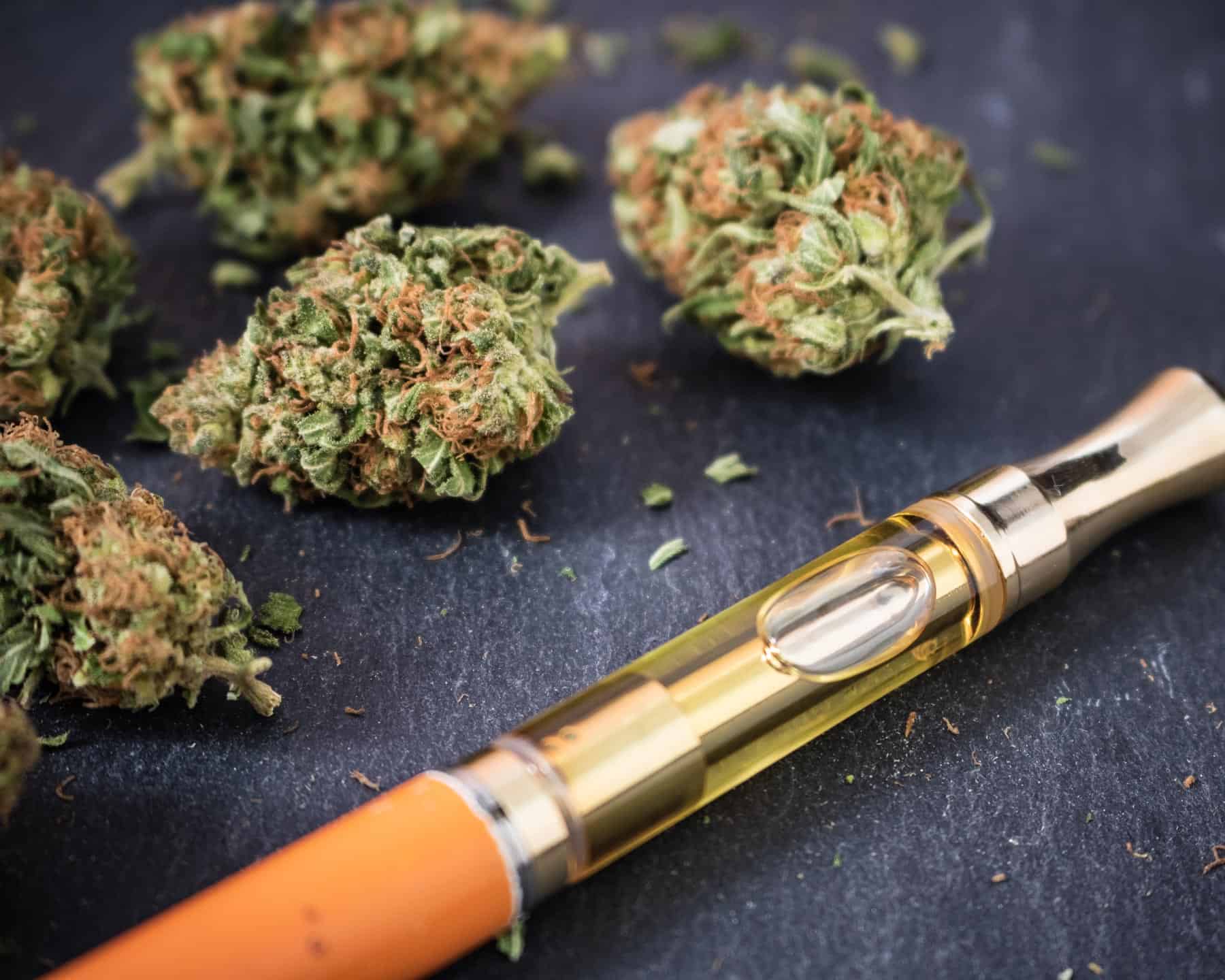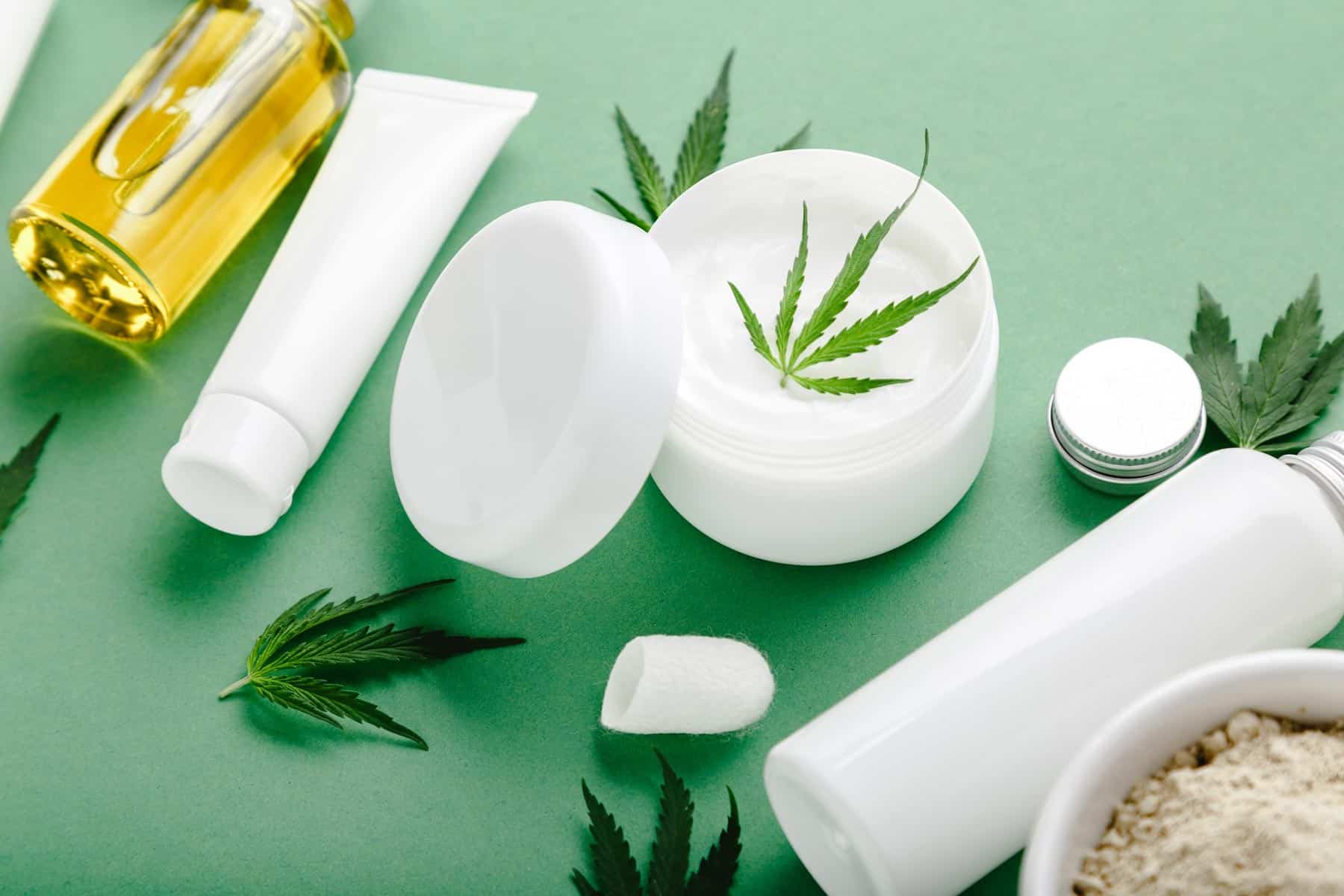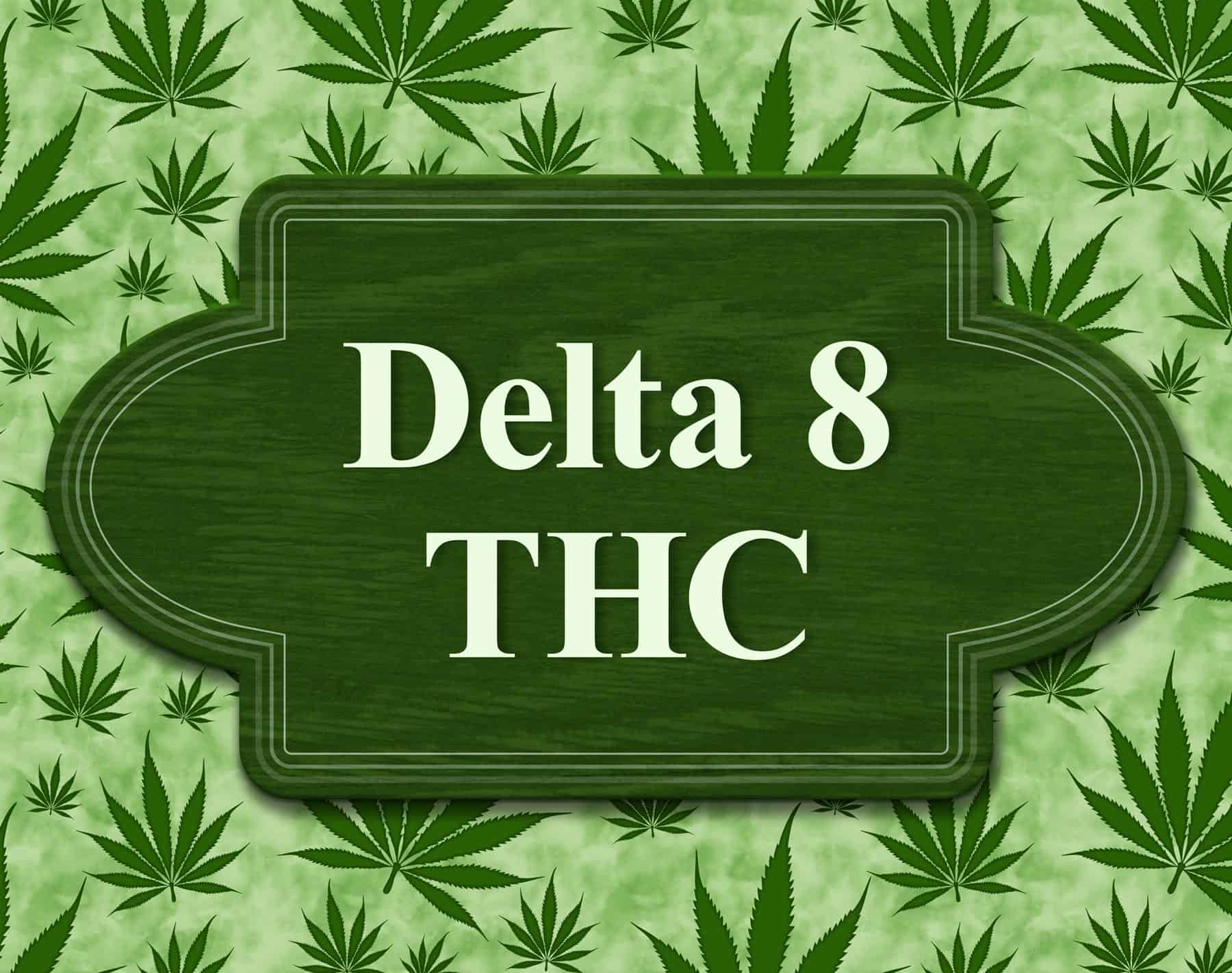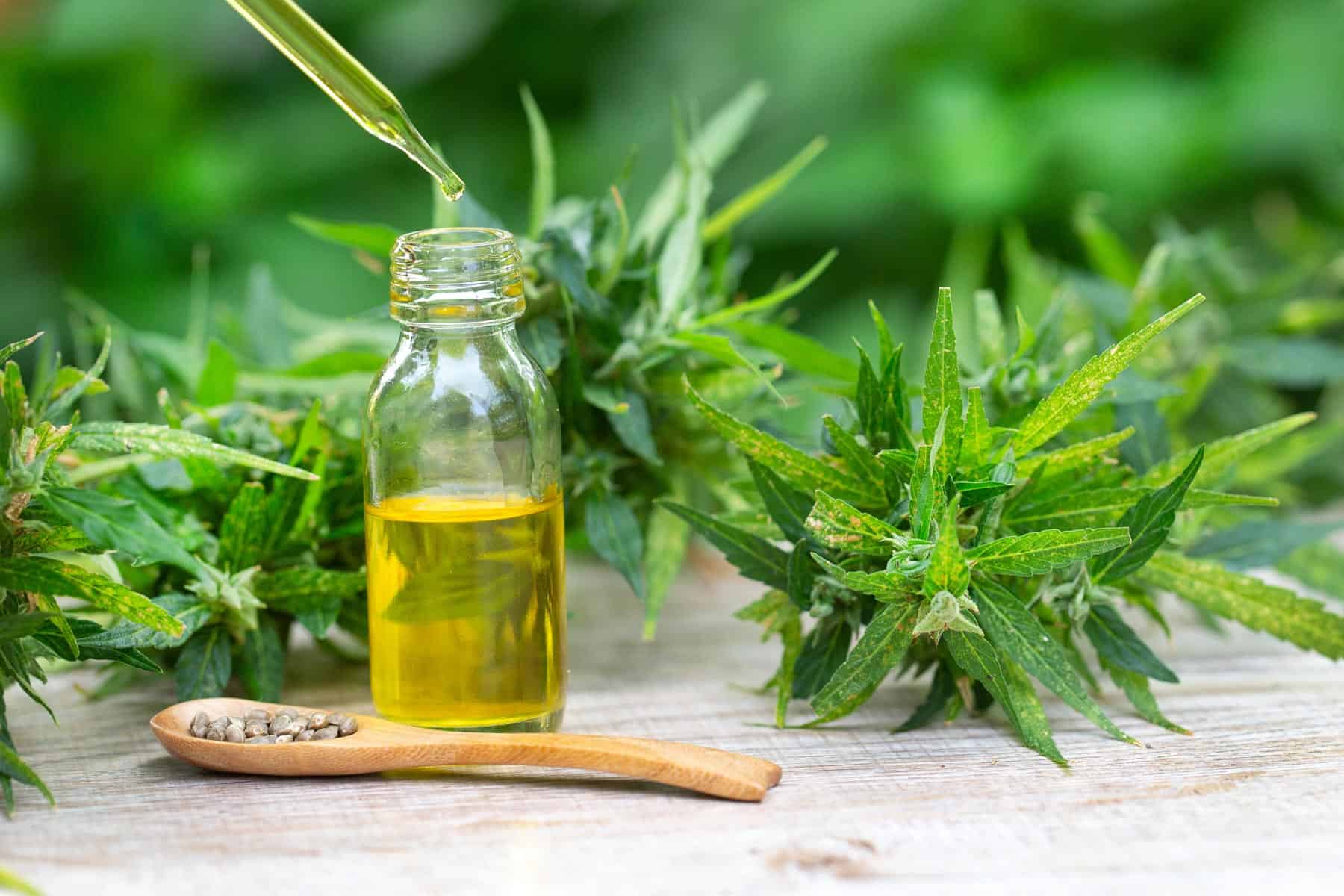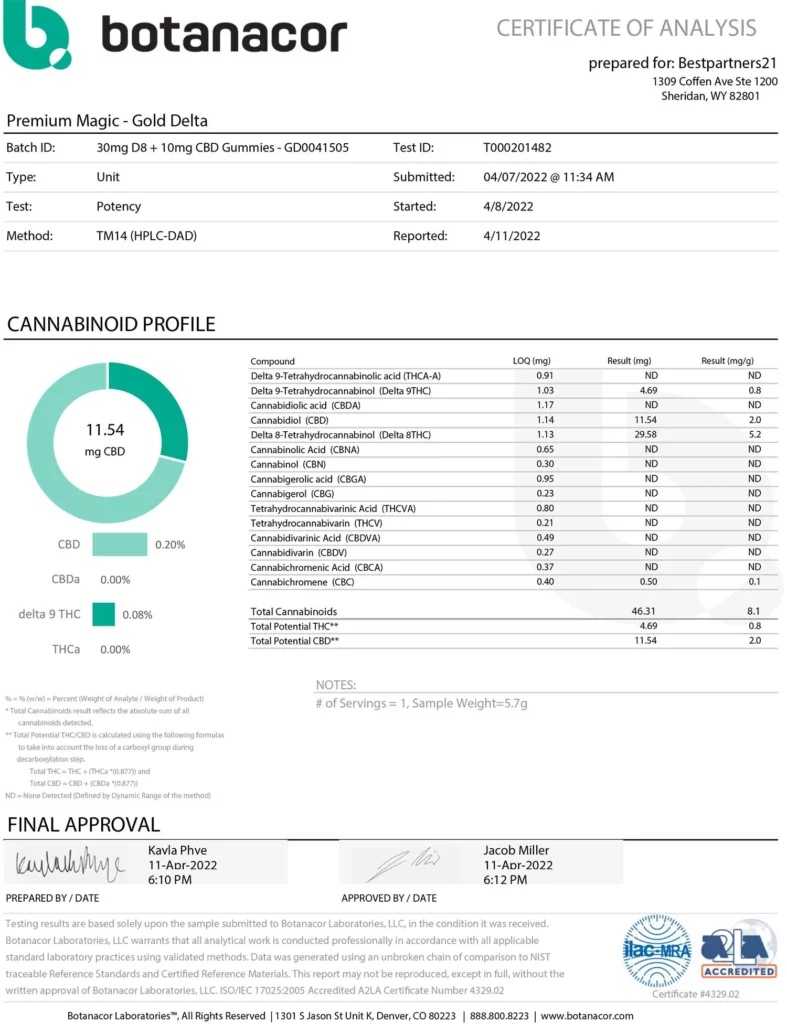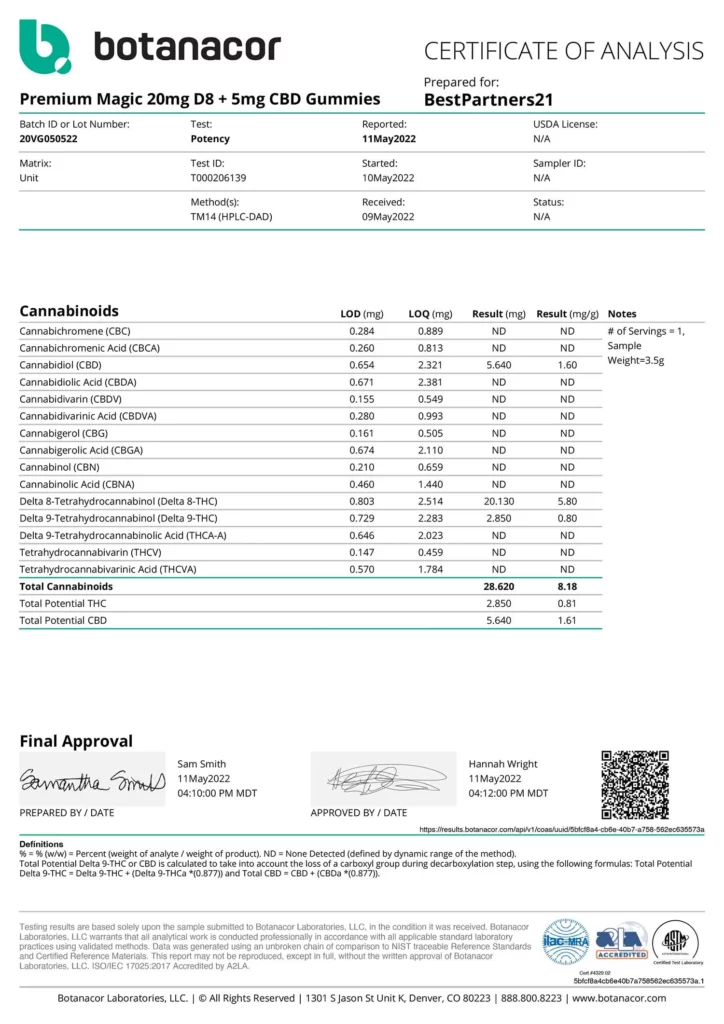
What is Delta 8 THC? Everything You Need to Know

The Enigma of Delta 8: Unraveling the Mysteries of a Cannabinoid Powerhouse
Welcome to a riveting journey into the world of Delta 8, a cannabinoid that’s been making waves in the cannabis industry and beyond. Right from the get-go, we have some fascinating information to share: Delta 8 THC constitutes only about 0.1% of the dry weight of cannabis plants, yet it has been gaining popularity at an unprecedented rate. But why is this elusive compound generating so much buzz? In this article, we’ll explore the depths of Delta 8 and shed light on its unique properties, benefits, and potential applications.
We’ll discuss the chemistry behind Delta 8, its differences from its well-known cousin Delta 9 THC, the legal landscape surrounding it, and its therapeutic potential for various medical conditions. So, buckle up and join us as we delve deep into the enigmatic world of Delta 8, where science, legality, and the promise of untapped benefits converge to create a cannabinoid experience like no other.
Definition of Delta 8 THC
Delta 8 is rapidly gaining attention in the world of cannabis as consumers seek alternatives to traditional THC products. But what exactly is Delta 8?
The Basics: Delta 8 THC Defined
Delta 8 THC, also known as Delta-8-tetrahydrocannabinol, is a naturally occurring cannabinoid found in the Cannabis sativa plant. Though structurally similar to Delta 9 THC (the primary psychoactive compound in marijuana), it possesses unique properties that set it apart.
According to the National Cancer Institute’s Drug Dictionary, Delta 8 THC is “an analogue of tetrahydrocannabinol (THC) with antiemetic, anxiolytic, appetite-stimulating, analgesic, and neuroprotective properties.” In simpler terms, Delta 8 THC can help alleviate nausea, anxiety, and pain while also promoting appetite and protecting the nervous system.
Delta 8 THC, according to Wikipedia, is an isomer of tetrahydrocannabinol (THC) and a derivative of hemp and marijuana. Also known as delta-8-tetrahydrocannabinol, it is one of the many cannabinoids found in the cannabis plant.
As mentioned earlier, Delta 8 is closely related to its more well-known cousin, Delta 9 THC. However, the two differ in the arrangement of their atomic bonds. Studies indicate that the principal difference between Delta 8 and Delta 9 THC is the location of the double bond in the hydrocarbon ring, which is in the 8th carbon atom for Delta 8 and the 9th carbon atom for Delta 9 THC.
This subtle difference in molecular structure results in a noticeable variation in the potency and effects of the two cannabinoids. Delta 8 is typically less potent than Delta 9 THC, offering a milder psychoactive experience. Many users report feeling more clear-headed and functional with Delta 8 compared to the sometimes overpowering high of Delta 9 THC.
Though Delta 8 is present in the Cannabis sativa plant, it is found in much smaller concentrations compared to Delta 9 THC. A study published in the ACS Omega journal notes that “Delta 8 is a minor cannabinoid, usually present in concentrations of less than 1% in the plant.”
Due to its low natural concentration, the majority of Delta 8 products on the market are synthesized from other cannabinoids, primarily CBD. This process, known as isomerization, involves a chemical reaction that alters the molecular structure of CBD, converting it into Delta 8.
Buzz about Delta 8
As the global conversation around cannabis and its various compounds continues to evolve, Delta 8 THC has emerged as a hot topic in recent times. Let’s explore what is fueling the buzz around Delta 8 and why it’s becoming increasingly popular.
Legal Ambiguity and the 2018 Farm Bill
One of the key reasons for the Delta 8 buzz is its legal status. The 2018 Farm Bill legalized industrial hemp, effectively making hemp-derived cannabinoids like Delta 8 legal in the United States. However, the legal landscape remains uncertain, as the Drug Enforcement Administration (DEA) and the Food and Drug Administration (FDA) have yet to clarify their stance on Delta 8. This ambiguity has led to a surge of interest and debate among consumers, lawmakers, and industry insiders.
The Rise of Delta 8 Products
With the increasing demand for Delta 8 there has been a corresponding growth in the variety of products available. Consumers can now choose from Delta 8-infused gummies, vape cartridges, tinctures, and more. This wide range of options has contributed to the buzz, as people experiment with different ways to incorporate Delta 8 into their lifestyles.
Potential Therapeutic Benefits
Research into the potential therapeutic benefits of Delta 8 is still in its early stages. However, preliminary studies suggest that it may have a range of medicinal properties, including antiemetic, analgesic, and neuroprotective effects. This has sparked excitement among researchers, healthcare professionals, and consumers who are eager to learn more about the potential applications of Delta 8 in the treatment of various health conditions.
Celebrities and Influencers Endorsements
Another factor contributing to the Delta 8 buzz is the endorsement of celebrities and influencers. High-profile figures from various industries have expressed their support for Delta 8, sharing their positive experiences and encouraging fans to explore its benefits. This has led to increased media attention and has further fueled the conversation around Delta 8.
Brief history of Delta 8
Tracing the roots of Delta 8 takes us on an enlightening journey through the history of cannabis research. The exploration of Delta 8 not only showcases the ever-evolving understanding of cannabinoids but also highlights the impact of scientific advancements on the cannabis industry.
The Discovery of Delta 8
The history of Delta 8 THC dates back to the early 1960s when Dr. Raphael Mechoulam, an Israeli organic chemist, first identified and isolated the compound. Mechoulam’s groundbreaking research led to the discovery of the molecular structure of Delta 8, which paved the way for further investigations into the cannabis plant’s chemical makeup.
Early Research and Medical Applications
Following its discovery, Delta 8 gained traction in the scientific community, sparking numerous studies exploring its potential medical applications. In 1975, researchers conducted a study that demonstrated the compound’s ability to inhibit cancer cell growth in rats, hinting at its potential therapeutic properties.
Another milestone in Delta 8 research came in 1995, when a study led by Dr. Mechoulam revealed its effectiveness in treating nausea and vomiting caused by chemotherapy in pediatric patients. This clinical trial showcased Delta 8 potential as a safer alternative to traditional antiemetic medications, which often came with severe side effects.
The Evolution of Legal Landscape of Delta 8
As the understanding of Delta 8 therapeutic properties grew, so did the interest in its legal status. In the United States, the Controlled Substances Act (CSA) of 1970 classified all forms of THC, including Delta 8, as a Schedule I substance. However, the 2018 Farm Bill revolutionized the legal landscape by federally legalizing hemp and its derivatives, provided they contained no more than 0.3% Delta 9 THC concentration.
The 2018 Farm Bill opened the doors for Delta 8 derived from hemp, creating a rapidly growing market for this unique cannabinoid. Producers began converting CBD, a more abundant cannabinoid in hemp, into Delta 8 through isomerization. This development sparked a surge in Delta 8 products, including tinctures, edibles, and vape cartridges.
Chemical and Structural Characteristics of Delta 8
As a lesser-known cannabinoid, understanding its chemical and structural characteristics is crucial to appreciate the nuances that set it apart from its more famous counterpart, Delta 9 THC.
Molecular Composition and Isomerism
Delta 8 (Δ8-THC) and Delta 9 THC (Δ9-THC) are isomers, meaning they have the same molecular formula but differ in the arrangement of their atoms. Both cannabinoids have the molecular formula C21H30O2 and are composed of 21 carbon, 30 hydrogen, and 2 oxygen atoms. However, the double bond in their molecular structures is what sets them apart. In Δ8-THC, the double bond is situated on the 8th carbon atom in the carbon chain, whereas in Δ9-THC, the double bond is located on the 9th carbon atom.
Cyclic Structure and Stereocenters
The cyclic structure of Delta 8 is another important aspect of its chemical makeup. The molecule features a six-membered ring containing a single oxygen atom, which is crucial for its interaction with cannabinoid receptors in the human body. Additionally, Delta 8 has three stereocenters, specifically at carbons 6a, 10a, and the chiral carbon at position 9. The most common form of Delta 8-THC is the (–)-trans isomer, also known as the (6aR,9R)-enantiomer.
Chemical Stability and Degradation
Delta 8 exhibits greater chemical stability compared to Delta 9 THC due to the position of its double bond. The double bond in Delta 8-THC is less susceptible to oxidation, which means that it is less likely to degrade into other compounds when exposed to air or light. This increased stability could have implications for the shelf life and potency of Delta 8-THC-containing products.
Interaction with the Endocannabinoid System
The chemical and structural characteristics of Delta 8 play a critical role in how it interacts with the human endocannabinoid system (ECS). The ECS comprises two main receptors, CB1 and CB2. While Δ9-THC binds strongly to CB1 receptors, found primarily in the brain, Delta 8-THC exhibits a lower affinity for these receptors. This difference in receptor affinity results in Δ8-THC producing less potent psychoactive effects compared to Δ9-THC.
Safety of Delta 8 THC
The safety of Delta 8 THC has become a significant topic of discussion as its popularity continues to rise. Studies on Delta 8 THC are limited in comparison to Delta 9 THC, but existing research suggests that Delta 8 may have a lower psychotropic potency. This means that users may experience less intense psychoactive effects, making it a potentially safer option for those seeking the therapeutic benefits of cannabis without the associated anxiety or paranoia. However, it is crucial to emphasize that individual reactions to Delta 8 THC can vary, and more research is needed to establish a definitive safety profile.
The safety of Delta 8 THC may also be influenced by the method of consumption. For instance, inhalation through vaping or smoking may pose risks associated with lung irritation or damage, while oral ingestion in the form of edibles might lead to delayed onset and unpredictable effects. In order to minimize risks, it is recommended that users start with a low dosage and increase gradually, as well as consider alternative consumption methods such as tinctures or topicals.
Another concern regarding the safety of Delta 8 THC pertains to the quality and purity of products available on the market. Due to the lack of stringent regulations, some Delta 8 THC products may contain harmful contaminants, such as residual solvents, pesticides, or heavy metals. To mitigate these risks, consumers should only purchase Delta 8 THC products from reputable sources and look for third-party lab testing results to ensure purity and quality.
Lastly, it is important to recognize that the safety of Delta 8 THC may be influenced by individual factors, including age, weight, metabolism, and pre-existing health conditions. As with any substance, it is crucial to consult with a healthcare professional before incorporating Delta 8 THC into a wellness routine, particularly for individuals with a history of mental health issues or those taking medications that may interact with cannabinoids.
Delta-8 THC claims to be milder than regular marijuana. But is it safe?
Here's why many experts advise against its use. https://t.co/YQi06feBs9
— The New York Times (@nytimes) July 10, 2022
Comparison of Delta 8 THC with Other Cannabinoids
Delta 8 THC vs. Delta 9 THC
Delta 8 THC and Delta 9 THC are closely related cannabinoids, with subtle but significant differences in their molecular structure. The primary distinction lies in the location of the double bond in their chemical composition: Delta 8 has the bond on the 8th carbon atom, while Delta 9 has it on the 9th. This seemingly minor difference results in unique pharmacological profiles for each compound.
While both Delta 8 and Delta 9 THC are psychoactive and can produce a “high,” Delta 8 is known for its milder, more manageable effects. Users often report less anxiety, paranoia, and overall intensity with Delta 8 compared to Delta 9. Additionally, Delta 8 may provide more pronounced therapeutic benefits, such as appetite stimulation, nausea reduction, and potential neuroprotective properties.
Delta 8 THC vs. CBD
Cannabidiol (CBD) is a non-psychoactive cannabinoid lauded for its therapeutic potential. Unlike Delta 8 THC, CBD does not produce a “high,” as it does not bind directly to the CB1 receptors in the brain. Consequently, CBD is more widely accepted and used for its anti-inflammatory, analgesic, anxiolytic, and anti-seizure properties.
While both Delta 8 THC and CBD can offer therapeutic benefits, they cater to different consumer preferences. Those seeking relief without psychoactive effects may opt for CBD, while individuals who desire milder psychoactivity alongside therapeutic benefits may prefer Delta 8 THC.
Delta 8 THC vs. CBG
Cannabigerol (CBG) is another non-psychoactive cannabinoid gaining attention for its potential therapeutic applications. Often referred to as the “mother of all cannabinoids,” CBG is a precursor to other cannabinoids like THC and CBD. Research on CBG is still in its early stages, but preliminary findings suggest potential anti-inflammatory, neuroprotective, and antibacterial properties.
Compared to Delta 8 THC, CBG offers a different range of potential benefits without psychoactivity. As more research is conducted on CBG, the specific advantages and disadvantages of this cannabinoid will become clearer, helping consumers make informed choices based on their needs.
Delta 8 and Delta 10 THC complexity
Both Delta 8 and Delta 10 THC share structural similarities with the more well-known Delta 9 THC. The primary difference between these cannabinoids lies in the position of the double bond in their chemical structure. In Delta 8 THC, the double bond is on the 8th carbon atom, whereas in Delta 10 THC, it is on the 10th carbon atom. This variation in molecular structure results in distinct interactions with the body’s endocannabinoid system and, consequently, differing effects.
While research on Delta 10 THC is still in its infancy, anecdotal reports and preliminary studies suggest that it may offer a distinct set of effects compared to Delta 8 THC. Delta 10 is believed to produce a more uplifting, energetic, and focus-enhancing experience, whereas Delta 8 is known for its more relaxing, calming, and appetite-stimulating properties. Both Delta 8 and Delta 10 THC are less potent than Delta 9 THC, providing milder and more manageable psychoactive experiences for users.
Marijuana, CBD and Delta 8
Marijuana contains a complex array of cannabinoids, including Delta 9 THC, which is primarily responsible for its psychoactive effects. CBD and Delta 8 THC, on the other hand, are often derived from hemp, a variety of Cannabis sativa with lower concentrations of Delta 9 THC.
Delta 8 THC bridges the gap between marijuana and CBD, offering users a milder psychoactive experience coupled with potential therapeutic benefits. As research continues to expand our understanding of cannabinoids, consumers may have even more options for exploring the potential benefits of Delta 8 THC and other compounds found in cannabis plants.
Medical and Therapeutic Properties of Delta 8 THC
With a slightly milder psychoactive effect compared to its better-known counterpart, Delta 9 THC, Delta 8 offers unique benefits that are of particular interest to patients and researchers. Let’s delve into the psychoactive effects, medical benefits, and potential side effects and risks associated with Delta 8 THC.
Psychoactive effects
- Milder High: One of the most notable differences between Delta 8 and Delta 9 THC is the intensity of the psychoactive effects. Delta 8 THC is often described as providing a milder, more manageable high compared to Delta 9 THC. This makes it an appealing option for individuals who may be sensitive to the potent effects of Delta 9 THC or those who want to enjoy the benefits of cannabis without feeling overwhelmed.
- Enhanced Focus and Clarity: Users often report that Delta 8 THC offers a sense of mental clarity and focus, as opposed to the “foggy” feeling that can sometimes accompany Delta 9 THC use. This heightened focus can make activities such as reading, writing, or creative pursuits more enjoyable and productive while under the influence of Delta 8 THC.
- Reduced Anxiety: One common complaint about Delta 9 THC is that it can induce anxiety and paranoia in some users. Delta 8 THC, on the other hand, is known to produce a more calming and relaxing experience, with less likelihood of triggering anxiety or paranoia. This can be particularly beneficial for those who suffer from anxiety disorders or who are prone to experiencing anxious thoughts when using cannabis.
- Body Relaxation: While Delta 8 THC is not as sedating as some other cannabinoids, it is known to provide a sense of bodily relaxation. This effect can be beneficial for those dealing with muscle tension, spasms, or chronic pain, as it can help to alleviate physical discomfort without causing excessive drowsiness or sedation.
- Euphoria and Mood Enhancement: Delta 8 THC is also known to promote feelings of euphoria and happiness, making it a popular choice for recreational users and medical patients alike. The mood-enhancing effects can be especially helpful for individuals suffering from mood disorders such as depression or anxiety, as Delta 8 THC may provide temporary relief from negative emotions and promote an overall sense of well-being.
Medical benefits
- Pain Relief and Anti-Inflammatory Effects: Delta 8 THC has demonstrated potential as an analgesic and anti-inflammatory agent, providing relief from various types of pain and inflammation. Studies have indicated that Delta 8 THC may be particularly beneficial for patients suffering from chronic pain conditions such as arthritis, neuropathy, and fibromyalgia, by reducing inflammation and alleviating pain symptoms.
- Nausea and Vomiting Reduction: Research has shown that Delta 8 THC can be an effective antiemetic, helping to reduce nausea and vomiting in patients undergoing chemotherapy or those experiencing these symptoms due to other medical conditions. This property is especially important for cancer patients, as it not only improves their quality of life but also increases the likelihood of successful treatment by enabling them to tolerate chemotherapy more effectively.
- Appetite Stimulation: Delta 8 THC has been found to stimulate appetite, making it a potential treatment option for individuals with conditions that cause appetite loss or those undergoing treatments that suppress appetite, such as chemotherapy. By promoting healthy appetite levels, Delta 8 THC can help improve overall nutrition and well-being in patients who may be struggling to maintain adequate food intake.
- Anxiety and Stress Management: Delta 8 THC’s ability to provide a more relaxed and calming experience compared to Delta 9 THC makes it an appealing option for those seeking relief from anxiety and stress. Its milder psychoactive effects may help to alleviate anxious thoughts and promote a sense of calm without exacerbating anxiety, as can sometimes occur with Delta 9 THC use.
- Neuroprotection and Cognitive Support: Emerging research suggests that Delta 8 THC may have neuroprotective properties, which could help protect and regenerate brain cells. This potential benefit is of particular interest in the study of neurodegenerative disorders such as Alzheimer’s and Parkinson’s disease. Additionally, the enhanced focus and clarity reported by Delta 8 THC users may provide cognitive support, improving memory, learning, and overall brain function.
- Sleep Improvement: While not as sedating as some other cannabinoids, Delta 8 THC has been reported to promote relaxation and improve sleep quality for some users. This makes it a potential option for individuals suffering from insomnia or other sleep disorders, as it may help them achieve restful and restorative sleep without the need for more potent sedatives.
- Antitumor Activity: Preliminary research has indicated that Delta 8 THC may have antitumor properties, inhibiting the growth of cancer cells in certain types of cancer. While more research is needed to fully understand the extent of these effects, Delta 8 THC’s potential role in cancer treatment and prevention is a promising area of study.
Side effects and risks
Here are some of the common delta 8 THC side effects and risks that you should know about:
- Drowsiness: One common side effect of Delta 8 THC use is drowsiness. Users may experience feelings of lethargy or fatigue, which can impair their ability to operate heavy machinery or perform tasks that require focus and attention. While this side effect can be beneficial for individuals seeking to promote relaxation and sleep, it should be taken into consideration when planning daily activities.
- Dry Mouth and Eyes: Delta 8 THC can cause dry mouth and eyes, a common side effect of cannabis use. This occurs due to the way cannabinoids interact with the body’s endocannabinoid system, leading to a decrease in saliva and tear production. While uncomfortable, dry mouth and eyes are generally not harmful and can be alleviated by staying hydrated and using eye drops.
- Increased Heart Rate: Delta 8 THC use may cause a temporary increase in heart rate, which can be a concern for individuals with pre-existing heart conditions. While this effect is usually mild and temporary, individuals with heart issues should exercise caution when using Delta 8 THC or any cannabis product.
- Tolerance and Dependence: As with other cannabinoids, long-term use of Delta 8 THC may lead to the development of tolerance and dependence. Users may find that they require higher doses of Delta 8 THC over time to achieve the desired effects, and sudden cessation may result in withdrawal symptoms such as irritability, insomnia, and anxiety. It is important to use Delta 8 THC responsibly and with caution to minimize the risk of tolerance and dependence.
- Legality: The legality of Delta 8 THC is currently a grey area, with its status varying depending on location. While some states have legalized Delta 8 THC, others have yet to clarify its legal status. Users should research the legality of Delta 8 THC in their area before obtaining or using it for medical purposes.
- Drug Testing: Delta 8 THC use may result in a positive drug test for THC, as it is a structural analog of Delta 9 THC. This can be a concern for individuals who are subject to drug testing for employment or other reasons. It is essential to be aware of this potential risk and to exercise caution when using Delta 8 THC in situations where drug testing may be required.
How is Delta 8 THC Made?
Delta 8 THC (tetrahydrocannabinol) is a psychoactive compound that occurs naturally in small amounts in cannabis plants. However, it can also be synthesized from CBD (cannabidiol) through a process called isomerization. Let’s explore how Delta 8 THC is made.
Extraction methods and purity of Delta 8 THC
Delta 8 THC can be extracted from cannabis plants using various methods, including CO2 extraction, ethanol extraction, and hydrocarbon extraction. Each of these methods has its advantages and disadvantages, and the purity of the extracted Delta 8 THC can vary depending on the method used.
CO2 extraction is considered the safest and most efficient method, as it does not involve the use of toxic solvents. However, it requires expensive equipment and can result in low yields of Delta 8 THC. Ethanol extraction is a cheaper alternative, but it can result in lower purity due to the presence of other compounds in the extract. Hydrocarbon extraction, on the other hand, can result in high yields but may also introduce harmful impurities.
Stability and degradation of Delta 8 THC
Delta 8 THC is relatively stable under normal conditions, but it can degrade over time when exposed to heat, light, or air. This degradation can result in the formation of Delta 9 THC, which is a more potent psychoactive compound. Therefore, it is essential to store Delta 8 THC properly to maintain its potency and purity. Proper storage conditions include keeping it in a cool, dark place and using airtight containers to prevent exposure to air.
Differences between Delta 8 THC and Delta 9 THC production
Delta 8 THC and Delta 9 THC are two different isomers of THC, with Delta 9 THC being the more well-known and prevalent isomer. The production of Delta 8 THC involves the isomerization of CBD, while Delta 9 THC is synthesized directly from CBG (cannabigerol). Delta 8 THC is less potent than Delta 9 THC and is reported to have a milder psychoactive effect. However, Delta 8 THC is becoming increasingly popular due to its legal status in many states and its potential medicinal benefits.
Differences in CBD and Delta 8 THC production
CBD and Delta 8 THC are two different compounds with different properties and effects. While Delta 8 THC is synthesized from CBD, the production processes for the two compounds differ significantly. CBD is extracted from hemp or cannabis plants using various methods, including CO2 extraction, ethanol extraction, and solvent extraction.
Once extracted, CBD can be further processed into different forms, including oils, tinctures, and isolates. Delta 8 THC, on the other hand, is synthesized through a chemical reaction that involves the isomerization of CBD. This process requires specialized equipment and expertise, and the resulting Delta 8 THC product must be tested for purity and potency.
How to Consume Delta 8 THC
Delta 8 THC Edibles: A Tasty and Discreet Option
- Gummies and Chocolates: Delta 8 THC-infused gummies and chocolates are popular choices for their convenience, taste, and discreetness. They usually contain a specific dosage of Delta 8 THC per serving, making it easy to control your intake.
- Baked Goods: Homemade Delta 8 THC-infused brownies, cookies, and other baked goods are also an option for those who prefer a more personalized experience. Be sure to follow a reliable recipe and calculate the dosage accurately to avoid overconsumption.
- Onset and Duration: Edibles typically take longer to take effect (1-2 hours) and provide a longer-lasting experience (4-8 hours) compared to other consumption methods.
Vaping Delta 8 THC: Fast-Acting and Customizable
- Cartridges: Pre-filled Delta 8 THC vape cartridges are available in various strains, flavors, and potencies. They can be attached to a compatible vape pen or battery for a convenient and discreet vaping experience.
- Disposable Vape Pens: These are all-in-one devices pre-filled with Delta 8 THC e-liquid, offering a hassle-free and portable option.
- Onset and Duration: Vaping offers a fast-acting experience, with effects typically felt within 5-10 minutes and lasting for 2-4 hours.
Delta 8 THC Tinctures: Versatile and Easy to Use
- Sublingual Administration: Delta 8 THC tinctures are usually taken sublingually (under the tongue) for rapid absorption into the bloodstream. Hold the liquid under your tongue for 30-60 seconds before swallowing.
- Adding to Foods and Beverages: Tinctures can also be added to your favorite recipes or beverages, although this may affect the onset time and potency.
- Onset and Duration: When taken sublingually, tinctures generally take effect within 15-45 minutes and last for 4-6 hours.
Dosage Recommendations for Delta 8 THC
- Start Low and Go Slow: Begin with a low dose (5-10mg) and wait at least 2 hours for edibles or 15 minutes for vaping and tinctures before increasing the dosage, if needed.
- Personal Factors: Age, weight, metabolism, and tolerance levels can all affect your optimal Delta 8 THC dosage. Consult with a healthcare professional if you’re unsure about your ideal dosage.
- Monitor Your Experience: Keep a journal to track your dosages and experiences, noting any side effects or desired effects to help you find your perfect dosage.
Whether you choose edibles, vaping, or tinctures, understanding the various methods of consuming Delta 8 THC and their respective dosages is crucial for a safe and enjoyable experience. Always start with a low dose and gradually increase it, keeping in mind your personal factors and preferences.
How to Choose the Best Delta 8 THC Product
Choosing the best Delta 8 THC product can be a daunting task, especially with the wide variety of options available in the market. To ensure you get a high-quality, safe, and effective product, consider the following factors:
- Lab Testing and Certificates of Analysis (COA)
One of the most critical aspects of choosing a reliable Delta 8 THC product is verifying that it has been lab tested. A reputable brand should have its products tested by a third-party lab to ensure they are free from contaminants, pesticides, and heavy metals. Additionally, lab testing helps to confirm the concentration of Delta 8 THC and other cannabinoids in the product.
Look for a Certificate of Analysis (COA) on the brand’s website, which should provide detailed information about the product’s contents. If a COA is not readily available or the brand is unwilling to provide one, consider looking for a different product.
- Brand Reputation and Transparency
A brand’s reputation is an essential factor in determining the quality of Delta 8 THC products. Research different brands and their history to determine if they have a track record of producing high-quality, safe products. Look for brands that are transparent about their sourcing, manufacturing processes, and lab testing procedures. A reputable brand should be willing to answer any questions you have and provide all necessary information to ensure you feel confident in your purchase.
- Reviews and Customer Feedback
Reading customer reviews and gathering feedback is an excellent way to gauge the overall satisfaction of others who have tried the Delta 8 THC product you are considering. Look for verified reviews on the brand’s website or third-party platforms such as forums, social media, and review sites. This will give you an idea of the product’s effectiveness, taste, and any potential side effects experienced by other users.
Pay attention to patterns in the feedback. If multiple customers report similar issues, it may be a sign that the product is not of the highest quality. On the other hand, if many users report positive experiences, it could be a good indication of the product’s effectiveness and safety.
- Product Type and Formulation
Delta 8 THC products come in various forms, such as tinctures, edibles, vape cartridges, and topicals. The right product for you will depend on your preferences, needs, and desired method of consumption. Consider factors such as the onset time, duration of effects, and bioavailability of each product type to make an informed decision.
- Extraction Method and Source Material
The extraction method used to obtain Delta 8 THC can have a significant impact on the final product’s quality and purity. Look for brands that use CO2 extraction or ethanol extraction, as these methods tend to produce cleaner and more potent products compared to other techniques.
Additionally, consider the source material used in the product. Delta 8 THC can be derived from either hemp or cannabis plants. Opt for products made from organically grown, pesticide-free plants to ensure a safer and cleaner final product.
Drug Test and Delta 8 THC
As the use of Delta 8 THC gains popularity, many individuals are concerned about how it may affect drug testing outcomes.
How Drug Tests Work and Target Cannabinoids
Drug tests commonly screen for a wide range of substances, including cannabinoids like Delta 9 THC (the primary psychoactive compound in marijuana). The most frequent types of drug tests include urine tests, blood tests, saliva tests, and hair follicle tests. These tests typically identify the presence of THC metabolites, such as THC-COOH, which can remain in the body for an extended period.
Detection of Delta 8 THC in Drug Tests
Though Delta 8 THC is chemically distinct from Delta 9 THC, it can still result in a positive drug test. This is because the metabolites of Delta 8 THC are similar to those of Delta 9 THC. Consequently, standard drug tests may not differentiate between the two cannabinoids, increasing the risk of a false positive for marijuana use.
Factors Influencing Delta 8 THC Detection
Several factors can influence the detection of Delta 8 THC in a drug test, such as:
- Dosage: The amount of Delta 8 THC consumed directly impacts the concentration of metabolites in the body.
- Frequency of Use: Regular users may have higher levels of metabolites, leading to a greater likelihood of detection.
- Metabolism: Individual metabolic rates can affect the speed at which the body processes Delta 8 THC and its metabolites.
- Test Sensitivity: Some drug tests are more sensitive than others, impacting the detection threshold for cannabinoids.
Minimizing the Risk of a Positive Drug Test
To minimize the risk of testing positive for Delta 8 THC, users should consider the following:
- Avoiding high doses of Delta 8 THC, especially in the days leading up to a drug test.
- Staying informed about the specific drug test being administered and its detection limits.
- Using Delta 8 THC products from reputable sources to ensure accurate labeling and content.
Challenging a False Positive Result
If a drug test returns a false positive for Delta 9 THC due to Delta 8 THC use, consider the following steps:
- Request a retest: This may help in case the initial test was a false positive.
- Provide proof of Delta 8 THC use: Sharing documentation, such as receipts or product labels, can help clarify the situation.
- Consult with a legal professional: A lawyer or legal advisor can provide guidance on navigating the appeals process.
Legality of Delta 8 THC
Federal Regulations on Delta 8 THC
The 2018 Farm Bill and Delta 8 THC
The legality of Delta 8 THC on a federal level is closely tied to the 2018 Farm Bill. This bill legalized industrial hemp and hemp-derived products, as long as they contain no more than 0.3% Delta 9 THC. However, the bill does not explicitly address Delta 8 THC, creating confusion and ambiguity surrounding its legal status.
DEA’s Interim Final Rule
In August 2020, the Drug Enforcement Administration (DEA) issued an Interim Final Rule (IFR) to implement the 2018 Farm Bill. The IFR clarified that all synthetically derived tetrahydrocannabinols remain Schedule I controlled substances. Since Delta 8 THC is often produced through the chemical conversion of CBD, many argue that it is considered a synthetic tetrahydrocannabinol and thus remains illegal under federal law.
State-specific Regulations on Delta 8 THC
While Delta 8 THC may occupy a legal gray area on the federal level, state laws vary significantly. Some states have explicitly banned Delta 8 THC, while others have adopted a more permissive stance. It is essential to familiarize yourself with your state’s specific regulations before using or possessing Delta 8 THC.
States with Explicit Bans
Several states have explicitly banned Delta 8 THC, including Alaska, Arizona, Arkansas, Colorado, Delaware, Idaho, Iowa, Mississippi, Montana, New York, Rhode Island, and Utah. In these states, possessing, using, or selling Delta 8 THC is considered illegal.
States with Ambiguous Regulations
In states like California, Florida, and Texas, the legal status of Delta 8 THC is unclear due to conflicting regulations or lack of specific legislation. Residents in these states should exercise caution and stay informed on any updates to their state’s regulations.
Legal Risks of Using Delta 8 THC
Possession and Use
Given the uncertain legal status of Delta 8 THC, individuals who use or possess it may face legal consequences, especially in states where it is explicitly banned or its status is unclear. Penalties for possession or use may range from fines to criminal charges, depending on the jurisdiction.
Manufacturing and Selling
Businesses that manufacture or sell Delta 8 THC products may also face legal challenges. Operating in states with unclear regulations exposes these businesses to potential legal action, as law enforcement may interpret the IFR differently. Furthermore, businesses should be aware that the FDA has not approved Delta 8 THC for consumption, which could result in additional regulatory scrutiny.
Navigating the Legal Gray Area of Delta 8 THC
The legal status of Delta 8 THC remains a complex issue, with federal regulations and state-specific laws creating a patchwork of legal landscapes. For individuals and businesses interested in Delta 8 THC, it is crucial to stay informed of any changes in federal or state regulations, and consult legal counsel when necessary.
Monitoring Federal and State Legislation
As the legal landscape surrounding Delta 8 THC continues to evolve, staying up-to-date on changes in federal and state legislation is crucial. Some sources to monitor for updates include:
Government Websites
Official state and federal government websites provide the most accurate and up-to-date information on legislation and regulations. Ensure to visit these sites regularly to stay informed about any changes.
Industry News and Blogs
Cannabis industry news outlets and blogs can offer valuable insights into the legal status of Delta 8 THC. Such sources often provide updates on legislation, legal challenges, and regulatory actions that may impact the industry.
Legal Advocacy Groups
Organizations such as the National Organization for the Reform of Marijuana Laws (NORML) and the Marijuana Policy Project (MPP) actively monitor and advocate for changes in cannabis laws. Following these groups can help you stay informed about current legal issues and potential shifts in policy.
Potential Future Changes in Delta 8 THC Legality
The legal status of Delta 8 THC is subject to change as federal and state governments continue to examine the issue. Several factors could influence the future legal landscape:
Additional DEA or FDA Guidance
The DEA or FDA may issue further guidance or clarification on the legal status of Delta 8 THC, either affirming its status as a controlled substance or providing a clearer path to legality.
Changes in State Legislation
State lawmakers may introduce new bills or amend existing laws to address the legal status of Delta 8 THC explicitly. As the cannabis industry continues to grow and evolve, more states may choose to regulate Delta 8 THC, either legalizing or banning it.
Federal Cannabis Legalization
The broader movement for federal cannabis legalization could have significant implications for the legal status of Delta 8 THC. If the federal government legalizes cannabis, it could lead to a more consistent legal framework for all cannabinoids, including Delta 8 THC.
In conclusion, the legality of Delta 8 THC remains a complex and evolving issue. Staying informed about federal and state regulations, monitoring legislative changes, and prioritizing legal compliance are essential steps for individuals and businesses navigating the uncertain legal landscape surrounding Delta 8 THC.
Delta 8 THC has several potential medical benefits, including pain relief, anti-nausea, appetite stimulation, and anxiety reduction. Additionally, it may exhibit neuroprotective properties and aid in combating inflammation.
Some common side effects of Delta 8 THC include dizziness, dry mouth, red eyes, and increased heart rate. Users may also experience feelings of euphoria, sedation, and mild psychoactive effects, which are generally less intense than those of Delta 9 THC.
The legality of Delta 8 THC varies depending on the country or region. In the United States, the legality is complex and subject to change. As of my knowledge cutoff in September 2021, Delta 8 THC derived from hemp is considered legal under the 2018 Farm Bill. However, some states have specifically banned or regulated Delta 8 THC, so it’s essential to check local laws and regulations.
Yes, Delta 8 THC can cause a positive drug test as most standard tests screen for THC metabolites, and they do not differentiate between Delta 8 and Delta 9 THC.
The length of time Delta 8 THC remains in your system depends on various factors such as metabolism, frequency of use, and body fat percentage. Generally, it can be detected in urine for up to 30 days, in blood for up to 2 weeks, and in hair for up to 90 days.
Yes, as mentioned earlier, Delta 8 THC can cause a positive drug test result because most tests do not differentiate between Delta 8 and Delta 9 THC.
Delta 8 THC is generally considered safe when used responsibly and in moderation. However, it is essential to research the product’s source and quality, as unregulated products may contain harmful contaminants or additives. It is also crucial to consider individual factors such as tolerance, medical history, and potential interactions with other medications.
Yes, using Delta 8 THC can result in a failed drug test, as it may be detected as THC in standard tests that do not differentiate between Delta 8 and Delta 9 THC.
Delta 8 THC products can be purchased from various sources, including online retailers, dispensaries, and local smoke shops. Be sure to verify the legality of Delta 8 THC in your area and choose a reputable vendor that provides transparent information about the product’s source, quality, and lab testing results.
